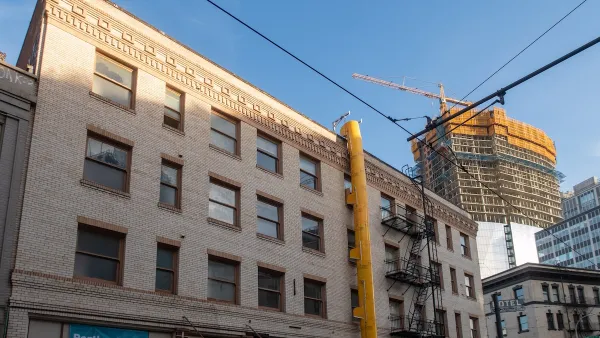The city's commissioners are weighing the option of using neighborhood-level median income to set affordable housing restrictions, but the move could face lawsuits under the federal Fair Housing Act.

The city of Austin is weighing a proposal to change the way it calculates income restrictions for affordable housing, reports Jonathan Lee for the Austin Monitor. While restrictions are currently tied to the median family income (MFI) for the entire Austin-Round Rock metropolitan area, "Commissioners wondered if using neighborhood MFI would be a better policy."
"The idea is that pegging MFI to the neighborhood level would bring deeply affordable units to poorer neighborhoods, since the MFI in those areas is lower than the area MFI. Commissioner Carmen Llanes Pulido pointed out that using area MFI means affordable units in lower-income neighborhoods are not actually affordable for many current residents."
But according to Erica Leak with the Housing and Planning Department, the proposal might be illegal. "Even though it’s intending to try and match the units with the neighborhood, which might be great in lower-income neighborhoods, it has an exclusionary effect in higher-income neighborhoods," Leak told the Austin Monitor. "According to Leak, other cities that have enacted such a policy have been sued." The city could choose to apply the neighborhood-level MFI selectively, which might not trigger a similar lawsuit.
"The discussion Tuesday came during a briefing on proposed changes to the affordability requirements in the Vertical Mixed-Use density bonus program. Further VMU discussions at the Planning Commission are expected March 22."
FULL STORY: Using neighborhood demographics might create deeply affordable housing. It might also be illegal.

Maui's Vacation Rental Debate Turns Ugly
Verbal attacks, misinformation campaigns and fistfights plague a high-stakes debate to convert thousands of vacation rentals into long-term housing.

Planetizen Federal Action Tracker
A weekly monitor of how Trump’s orders and actions are impacting planners and planning in America.

In Urban Planning, AI Prompting Could be the New Design Thinking
Creativity has long been key to great urban design. What if we see AI as our new creative partner?

King County Supportive Housing Program Offers Hope for Unhoused Residents
The county is taking a ‘Housing First’ approach that prioritizes getting people into housing, then offering wraparound supportive services.

Researchers Use AI to Get Clearer Picture of US Housing
Analysts are using artificial intelligence to supercharge their research by allowing them to comb through data faster. Though these AI tools can be error prone, they save time and housing researchers are optimistic about the future.

Making Shared Micromobility More Inclusive
Cities and shared mobility system operators can do more to include people with disabilities in planning and operations, per a new report.
Urban Design for Planners 1: Software Tools
This six-course series explores essential urban design concepts using open source software and equips planners with the tools they need to participate fully in the urban design process.
Planning for Universal Design
Learn the tools for implementing Universal Design in planning regulations.
planning NEXT
Appalachian Highlands Housing Partners
Mpact (founded as Rail~Volution)
City of Camden Redevelopment Agency
City of Astoria
City of Portland
City of Laramie





























